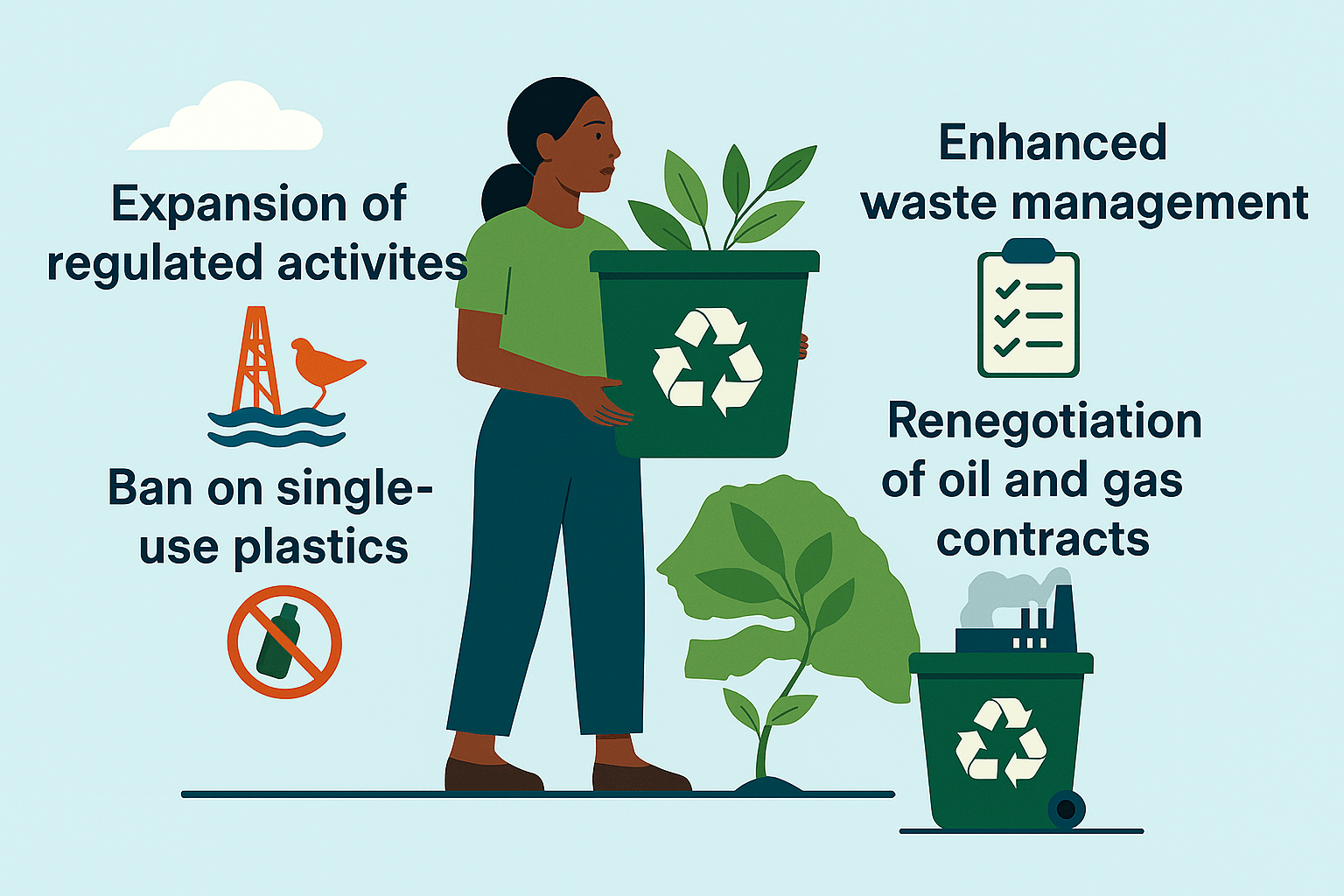1. New Environmental Code (Law No. 2023-15 of August 2, 2023)
Senegal has adopted a new Environmental Code to modernize environmental management and regulate industrial activities.
Key Innovations:
– Expansion of regulated activities: Inclusion of oil, gas, and mining industries under environmental regulations.
– Establishment of the National Fund for the Protection of the Marine and Coastal Environment (FN-PEM).
– Strengthening of waste management: Requirement for municipalities to develop waste management plans.
– Increased legal responsibility: Harsher penalties for polluting companies.
2. Waste Management in Senegal: Regulations and Challenges
Strengthening of the regulatory framework:
– Municipal waste management plans: Each municipality must implement a waste prevention and management plan.
– Increased control of treatment sites: Companies are required to comply with strict sorting, storage, and disposal standards.
Responsibility of producers and polluters:
– Polluter-pays principle: Companies generating hazardous waste must finance its collection and treatment.
– Waste traceability: Obligation to track industrial and hazardous waste, with penalties for non-compliance.
Management of Waste Electrical and Electronic Equipment (WEEE):
– Regulation of recycling: Authorization required for companies handling WEEE treatment.
– Recovery and reuse: Promotion of recycling and material reuse to limit environmental impact.
Measures against plastic pollution:
– Ban on single-use plastics: Law No. 2020-04 prohibits the production, import, and marketing of certain non-biodegradable plastic packaging.
– Promotion of eco-friendly alternatives: Tax incentives for companies offering biodegradable packaging.
Development of treatment infrastructure:
– Creation of sorting and recovery centers: Establishment of new sites to improve recycling.
– Installation of modern incinerators: Projects for incinerators to treat hazardous and medical waste.
Issues and challenges to address:
– Effective implementation of laws: Challenges related to monitoring and enforcement.
– Stakeholder awareness: Need for greater involvement of citizens and businesses.
– Investment in green technologies: Development of local recycling and waste recovery solutions.
3. Renegotiation of Oil and Gas Contracts
Since March 2024, President Bassirou Diomaye Faye has initiated audits and is considering renegotiating certain oil and gas exploitation contracts deemed unfavorable to the country.
Objective: To realign these contracts with current legislation and protect national interests.


